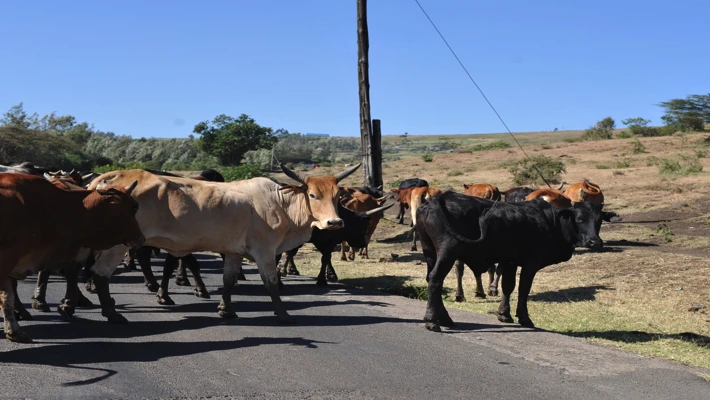 Abdulazeez Abubakar
4 weeks ago
Abdulazeez Abubakar
4 weeks ago
Overview
Livestock development innovation as game changer
Last Friday, the 2025 Ministerial Press Briefing, a prelude to the second anniversary of the Tinubu administration, kicked off at the Press Centre, Radio House, Abuja. The briefing, anchored by the Minister of Information and National Orientation, Alhaji Mohammed Idris, is serving as a platform for the ministers to reel out their scorecards and interface with the media on their deliverables in the past one year. It is the second edition of the exercise which President Bola Ahmed Tinubu has mandated his cabinet members to lay bare their performances in the public domain for assessment.
Among the first batch of ministers expected to interface with the media was the minister of the newly created Ministry of Livestock Development, Alhaji Idi Maiha, who regaled the audience with the disclosure that the federal government had begun drastic reforms in the sector to harness its N33 trillion revenue potential in the country.
He also said the ministry aims to increase the livestock sector’s Gross Domestic Product (GDP) contribution from $32 billion to $74 billion by 2035, assuring that machinery had been put in place to transform the industry. However, the minister identified the consumption of hide and skin, commonly known as pomo, as a barrier robbing Nigeria of at least N23 billion annually and stealing approximately 700,000 jobs.
Maiha also disclosed that the ministry was committed to diversifying the country’s economy and increasing its contribution to the GDP to 10 percent from five percent by 2030.
“It is estimated that Nigeria’s livestock sector is valued at over N33 trillion, making it one of the most significant yet underutilised, economic assets in the country. We have one of the largest livestock populations in Africa, a rapidly expanding market for meat and dairy products, and a strategic location for exports.
“However, poor infrastructure, inadequate investment, outdated production methods, and persistent conflicts between farmers and herders have prevented the sector from reaching its full potential,” Maiha said.
He stressed it was in recognition of these challenges and the enormous opportunities that President Tinubu deemed it fit to establish the Federal Ministry of Livestock Development on July 9, 2024, to drive a new era of transformation, innovation and sustainable growth. The minister noted that its mandate extends far beyond traditional livestock management, to diversify the economy, drive industrialisation, strengthen private sector participation, and secure Nigeria’s future in the global agriculture market.
“Over the past few months, we have laid the foundation for sustainable and inclusive growth. Our goal is for Nigeria’s livestock sector to become a major contributor to the Gross Domestic Product (GDP) from the current 5 percent to 10 percent by 2030, creating millions of jobs, and producing sufficient meat, dairy and other animal products to not only meet domestic demand, but also compete in the global market.
“The administration of President Bola Ahmed Tinubu is, therefore, committed to delivering real and measurable progress that translates into better opportunities for livestock producers, more jobs for Nigerians, greater food security, and a stronger economy,” Maiha further said.
He assured that the ministry would position Nigeria as a key player in both domestic and international markets for animal protein like Brazil, Argentina, and the United States in addition to
strengthening the nation’s livestock sector to generate over 500,000 jobs, thus helping to reduce unemployment and drive rural economic growth by 2027.
It is gratifying to note that the young ministry is already engaging stakeholders, including traditional rulers, development partners, and foreign embassies, to raise awareness of the sector’s potential. Equally noteworthy is the forging of strategic partnerships with international investors, agencies, and diplomatic missions to secure technical expertise, financing, and investment in the livestock industry. Countries like Brazil, China, the Czech Republic, Denmark, Egypt, Mexico, Morocco, Saudi Arabia, Sweden, the United Kingdom, and the United States are already on the card for the purpose.
According to the minister, these collaborations would focus on opportunities in meat processing, dairy production, animal health, feed production, and cold-chain logistics. These partnerships are expected to be instrumental in positioning Nigeria as a regional and global hub for livestock production and export. Other critical challenges being addressed by the ministry are poor infrastructure affecting the sector that would eventually lead to revamping grazing reserves nationwide, equipping them with feed and fodder facilities, water resources, veterinary services, and schools for pastoral families.
https://blueprint.ng/livestock-development-innovation-as-game-changer/



